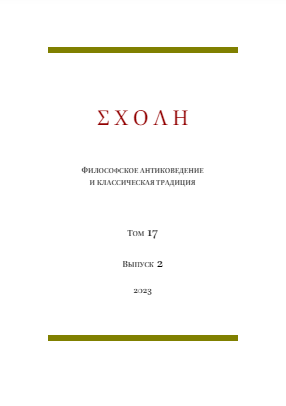Элементы теологической системы кумранской общины в корреляции с особенностями ее «гносеологии»
Elements of the theological system of the Qumran community in correlation with the peculiarities of its “gnoseology”
Author(s): Igor TantlevskijSubject(s): Epistemology, Logic, Ethics / Practical Philosophy, Philosophy of Religion
Published by: Новосибирский государственный университет
Keywords: theology; gnoseology; mysticism; Qumran community; creationism; predestination; dualism; eschatology; soteriology;
Summary/Abstract: The article attempts to identify the specifics of the ways in which the Qumran authors “know” God, based on an analysis of a number of their key works. The Qumranites’ acquisition of “theological” Knowledge was mainly of direct intuitive “spiritual” comprehension, including elements of “noethics”. This cognitive phenomenon has sometimes been described directly as insight (cf., e. g., 1QHa 12:5-6, 27-29; 15:24-25). On the other hand, the Qumran teaching that God “formed understanding (bynh) for all who seek knowledge (d‘t)” and that “all reason (śkl) is from eternity” (4Q299, fr. 8, 7–8) suggests that human mind is initially a partaker of the eternal Mind of God. As one consequence of this, one has the potential gift of directly accessing the elements of Knowledge contained within the Divine Mind (śkl, bynh). There was also a mystical-“gnostic” way of knowing. Thus, the Qumranites probably practised some kind of mystical heavenly “voyages” in a kind of ecstatic state — in fact, probably implying mystical “death” and subsequent “rebirth”, involving the acquisition of heavenly Knowledge. The author has also tried to reconstruct elements of the Qumranite theological system and identify some features of the Qumran creationist doctrine and the closely related doctrine of predestination; views of history, eschatology and the creation of a new world; dualistic concepts in correlation with soteriology; the Qumran theology of Light and Darkness in ethical, gnoseological and soteriological aspects.
Journal: ΣΧΟΛΗ. Философское антиковедение и классическая традиция
- Issue Year: XVII/2023
- Issue No: 2
- Page Range: 822-841
- Page Count: 20
- Language: Russian

